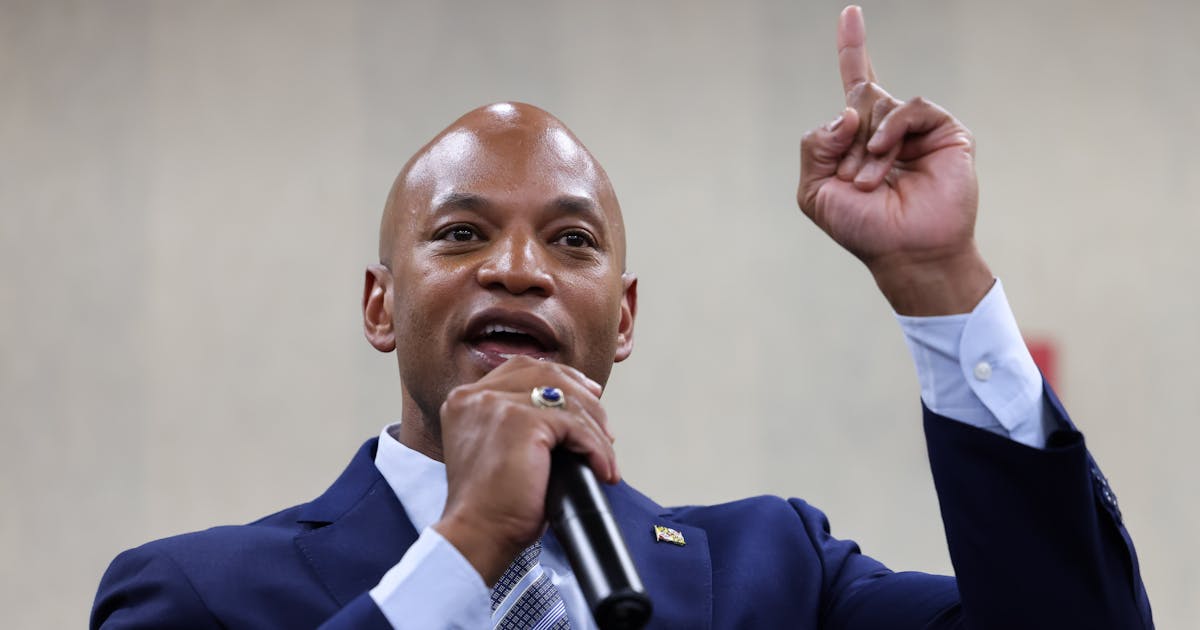- BlackVoter.Org
- Posts
- BlackVoter.Org
BlackVoter.Org


In a thought-provoking piece, Charles M. Blow delves into the current state of America, shedding light on the erasure of Black history amidst the revival of President Trump's administration.
He highlights how essential values like pluralism and racial justice have been sidelined, particularly as efforts to promote diversity, equity, and inclusion face increasing scrutiny. Blow mournfully reflects on how even the youngest American holiday, Juneteenth, has been caught in the crossfire of ongoing culture wars, illustrating a troubling shift in national priorities.
With his characteristic eloquence, Blow calls for a deeper reflection on our society’s commitments and the urgent need to celebrate rather than suppress the vibrant tapestry of American history.

A recent cancellation of a $460,000 federal grant threatens the preservation of 1,500 historic quilts housed at the Berkeley Art Museum and Pacific Film Archive (BAMPFA). This collection, part of a bequest from notable collector Eli Leon, not only showcases artistic beauty but also tells the stories of everyday Americans, particularly Black craftspeople.
The quilts, some dating back to the 1860s, require urgent conservation to prevent deterioration from mold and insects. The museum's executive director, Julie Rodrigues Widholm, emphasizes the race against time: without funding, conservation could halt after December, risking irreparable loss of these cultural treasures.
Amidst shifting federal priorities, the museum is exploring alternative funding sources to continue this critical preservation work. The situation highlights the vital role of government support in conserving community histories, as private funding alone won't fill the gap.


In his provocative piece, Joel Kotkin examines the ongoing turmoil in Los Angeles, arguing that it illustrates a striking failure of progressive leadership. Once a symbol of opportunity, the city has descended into chaos, driven by deepening political grievances and rising crime rates.
Kotkin highlights the struggles faced by immigrants, who come seeking a better life, only to find themselves in a harsh economic reality. Despite significant investments in public services, LA is grappling with a budget crisis and a decline in housing production, all while its once-vibrant neighborhoods have deteriorated into symbols of neglect.
With city leaders reluctant to address key issues like immigration and public safety, the city's future appears bleak. Kotkin suggests that until a commitment to restoring order is made, Los Angeles risks becoming a cautionary tale, fueling narratives that align with national political agendas.

In a compelling commentary for CBS News, Charles M. Blow explores the mixed sentiments surrounding Juneteenth, America’s newest federal holiday.
While this celebration of emancipation was once embraced with bipartisan enthusiasm, the cultural climate has shifted dramatically. Blow highlights the unsettling trend of erasing Black history and symbols, labeling it "The Great Blackout.
" Recent examples include corporate hesitance to support Juneteenth events and government efforts to undermine diversity initiatives. This unsettling reality is seen in canceled celebrations across various cities and a distressing move to dismantle significant symbols of Black heritage, like the Black Lives Matter mural in D.
C. As America grapples with its identity amidst a charged political landscape, Blow warns that the struggle for racial justice and recognition of Black history faces critical challenges, casting a shadow over Juneteenth’s future celebrations.

Elon Musk's recent split from the Trump administration has thrown him into a political quandary, prompting speculation about his future influence. A former staunch supporter, Musk is now voicing fierce opposition to Trump's signature legislation, labeling it a “massive, outrageous, pork-filled Congressional spending bill.
” This dramatic shift raises questions about his standing in the GOP, especially as Trump warns of repercussions if Musk supports primary challengers to lawmakers backing the bill.
Despite previously planning to scale back his political spending, Musk's fiery rhetoric raises the stakes for the upcoming midterms.
His declining approval ratings—now at just 33%—and past ties to the Republican Party further complicate matters. Meanwhile, some Democrats see a glimmer of potential in courting Musk, though it carries risks.
As tensions simmer, Musk hints at the possibility of launching a new political party, The America Party, adding an unpredictable twist to the political landscape.

In "American Politics Only Pretends to Work," J. Dylan Sandifer critiques the stagnation of U.
S. political action, emphasizing that the system is trapped in an endless cycle of processes that distract from meaningful change.
The article examines Maryland Governor Wes Moore’s controversial veto of a reparations bill, which highlights a broader issue: the political class often opts for performative gestures instead of genuine action. Sandifer argues that we possess ample evidence of systemic inequality—from racial wealth gaps to the impacts of historical injustices like slavery—but that political elites lack the will to implement the necessary reforms.
This “doom loop” of bureaucracy enables the status quo to thrive, ultimately disenfranchising citizens who see little difference in their material conditions, irrespective of party affiliation. In a world growing weary of illusions, Sandifer advocates for a courageous shift toward concrete solutions over hollow promises, urging us to reclaim agency and demand real change.

The recent cuts to the Library of Congress threaten the preservation of vital educational materials, particularly those illuminating Georgia's rich and complex history. A key example is Richard R.
Wright's 1894 pamphlet, chronicling the struggle for Black education amidst systemic barriers in Georgia. Wright’s work is not just a historical account; it’s an essential resource revealing the lengths to which individuals went to ensure access to education.
Amidst political moves to reshape the library’s direction, the risk of losing such narratives grows. The ousting of Carla Hayden, the library's first woman and African American director, raises alarms about potential erasure of marginalized voices and histories.
With growing political interference, it is crucial to protect the Library of Congress as a bastion of truth and educational equity, ensuring that future generations can learn from all facets of America’s past.